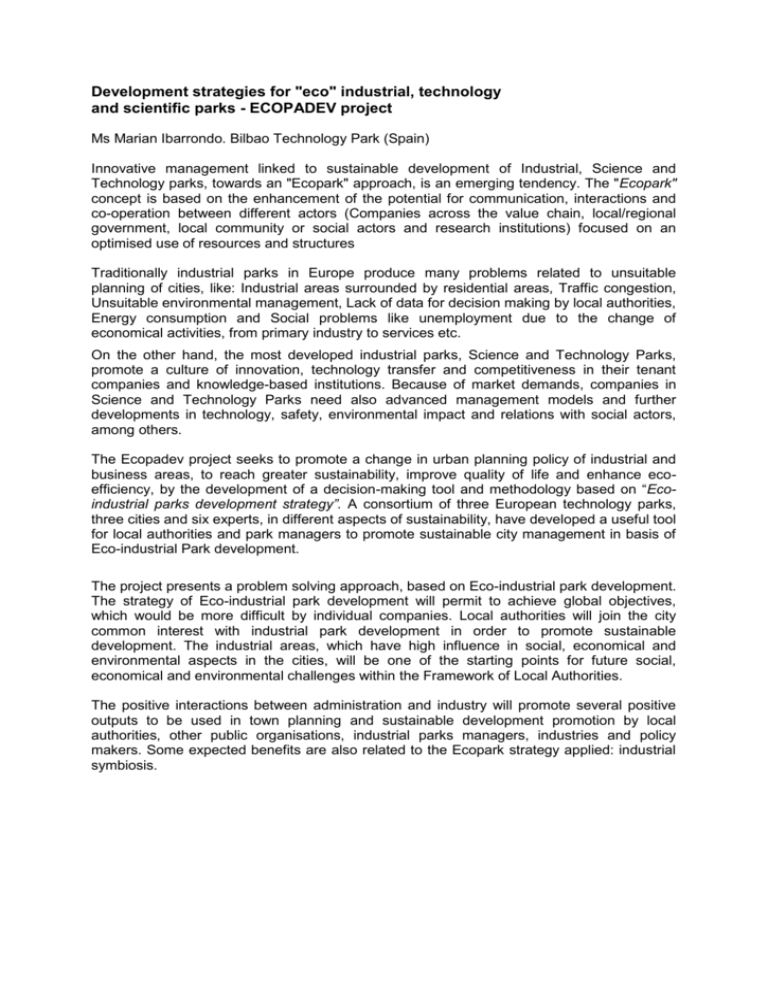Development strategies for "eco" industrial, technology
advertisement

Development strategies for "eco" industrial, technology and scientific parks - ECOPADEV project Ms Marian Ibarrondo. Bilbao Technology Park (Spain) Innovative management linked to sustainable development of Industrial, Science and Technology parks, towards an "Ecopark" approach, is an emerging tendency. The "Ecopark" concept is based on the enhancement of the potential for communication, interactions and co-operation between different actors (Companies across the value chain, local/regional government, local community or social actors and research institutions) focused on an optimised use of resources and structures Traditionally industrial parks in Europe produce many problems related to unsuitable planning of cities, like: Industrial areas surrounded by residential areas, Traffic congestion, Unsuitable environmental management, Lack of data for decision making by local authorities, Energy consumption and Social problems like unemployment due to the change of economical activities, from primary industry to services etc. On the other hand, the most developed industrial parks, Science and Technology Parks, promote a culture of innovation, technology transfer and competitiveness in their tenant companies and knowledge-based institutions. Because of market demands, companies in Science and Technology Parks need also advanced management models and further developments in technology, safety, environmental impact and relations with social actors, among others. The Ecopadev project seeks to promote a change in urban planning policy of industrial and business areas, to reach greater sustainability, improve quality of life and enhance ecoefficiency, by the development of a decision-making tool and methodology based on “Ecoindustrial parks development strategy”. A consortium of three European technology parks, three cities and six experts, in different aspects of sustainability, have developed a useful tool for local authorities and park managers to promote sustainable city management in basis of Eco-industrial Park development. The project presents a problem solving approach, based on Eco-industrial park development. The strategy of Eco-industrial park development will permit to achieve global objectives, which would be more difficult by individual companies. Local authorities will join the city common interest with industrial park development in order to promote sustainable development. The industrial areas, which have high influence in social, economical and environmental aspects in the cities, will be one of the starting points for future social, economical and environmental challenges within the Framework of Local Authorities. The positive interactions between administration and industry will promote several positive outputs to be used in town planning and sustainable development promotion by local authorities, other public organisations, industrial parks managers, industries and policy makers. Some expected benefits are also related to the Ecopark strategy applied: industrial symbiosis.











